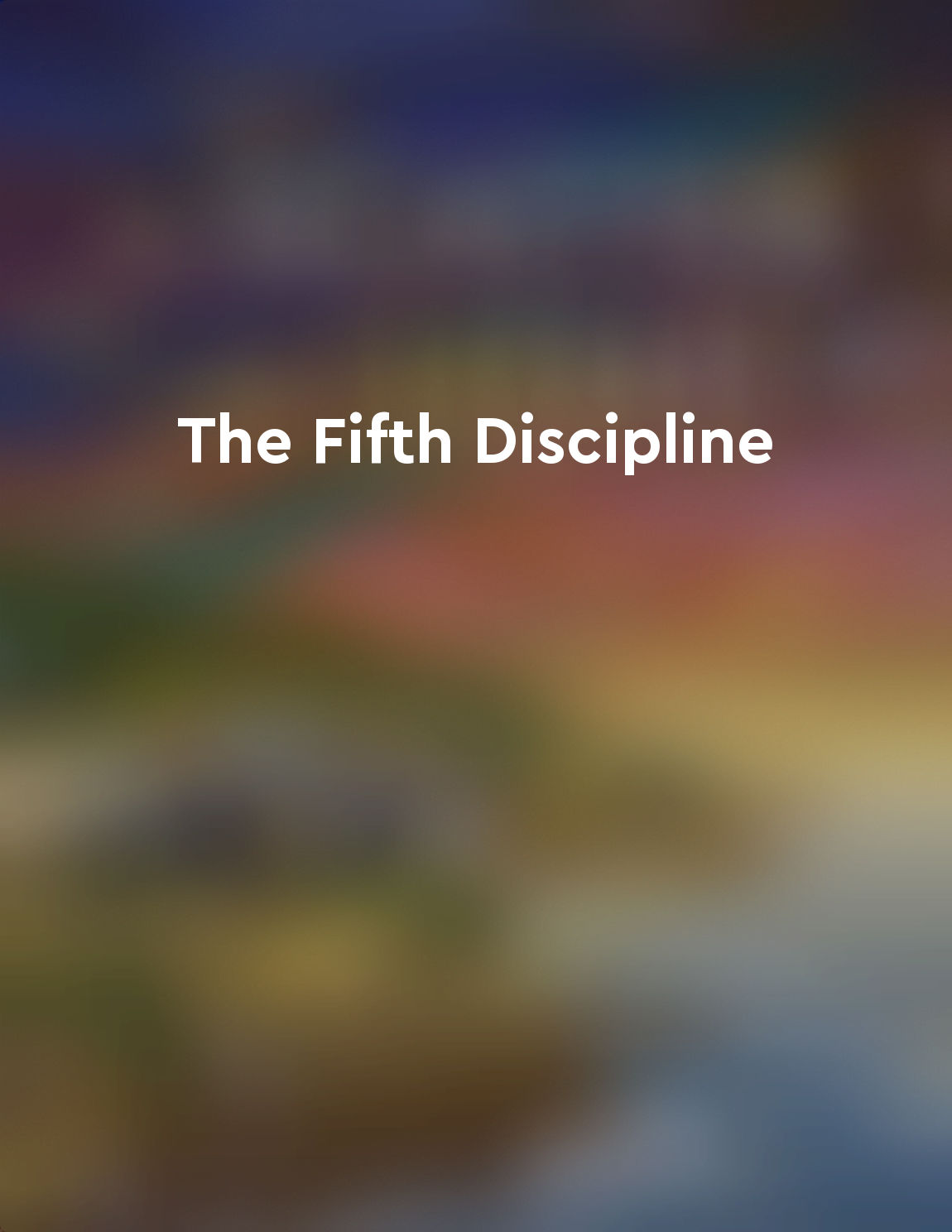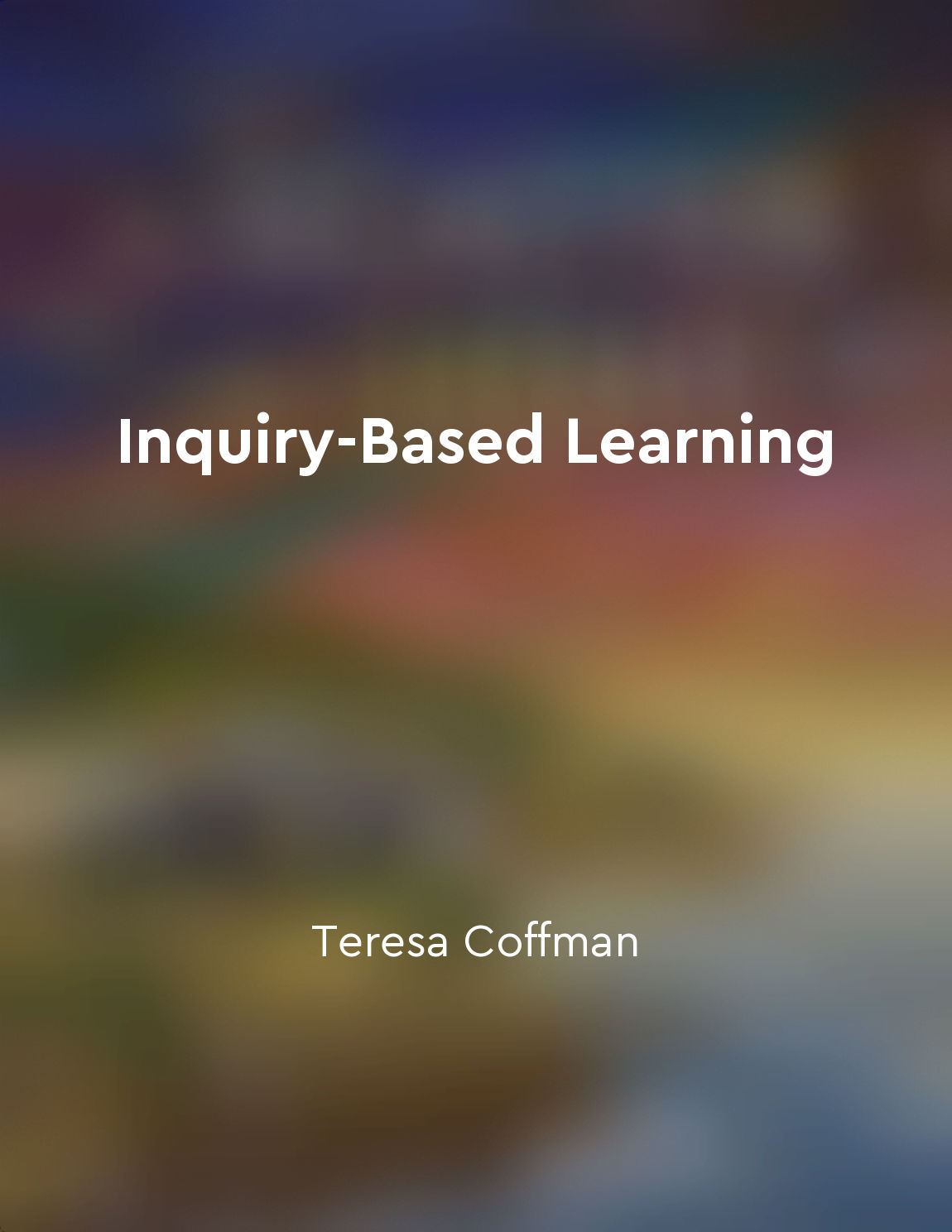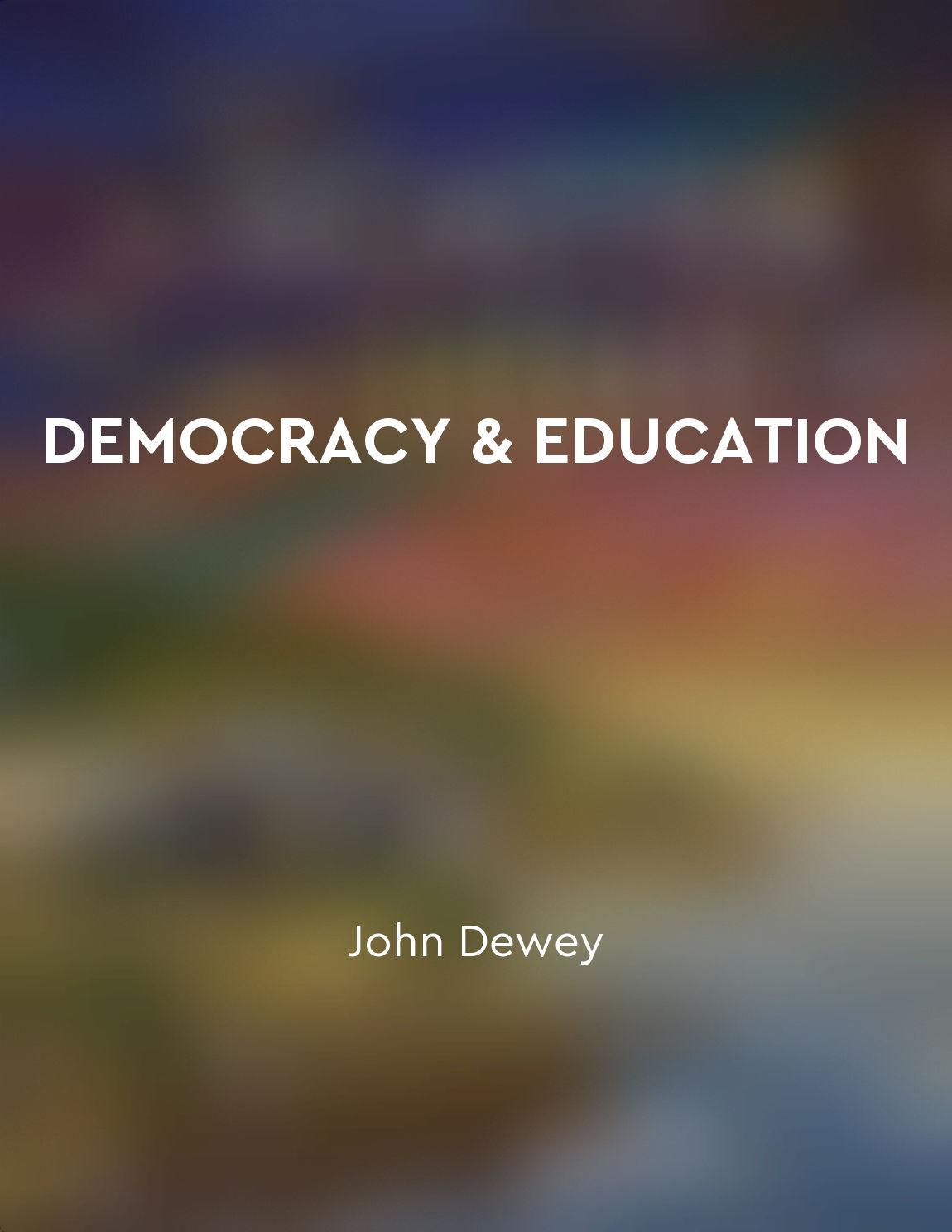Students learn by doing from "summary" of DEMOCRACY & EDUCATION by John Dewey
Learning by doing is a fundamental principle of education that is often overlooked in traditional classroom settings. When students actively engage in hands-on activities, they are able to connect theoretical concepts to real-world experiences, making the learning process more meaningful and effective. By immersing themselves in practical tasks, students are able to develop critical thinking skills, problem-solving abilities, and creativity. This approach allows them to explore different perspectives, experiment with new ideas, and collaborate with their peers to achieve common goals. When students are actively involved in the learning process, they are more motivated to explore and discover new knowledge. This sense of ownership over their education fosters a deeper understanding of the subject matter and encourages lifelong learning habits. Furthermore, learning by doing encourages students to take risks and learn from their mistakes. This trial-and-error approach promotes resilience and perseverance, as students are able to learn from their failures and adapt their strategies accordingly.- The concept of learning by doing emphasizes the importance of experiential learning in education. By providing students with opportunities to engage in hands-on activities, educators can help them develop essential skills and competencies that will prepare them for success in an ever-changing world.
Similar Posts

Creative tension drives organizational improvement
The idea that creative tension drives organizational improvement is a central concept in our exploration of learning organizati...

Students ask questions and seek answers
The essence of inquiry-based learning lies in the fundamental idea that students are encouraged to actively engage in the learn...
Parents are key partners in their child's education
In order for students to truly thrive academically, it is crucial for parents to play an active and engaged role in their child...
PBL involves identifying and defining problems
Problem-based learning (PBL) is a teaching approach that revolves around the notion of identifying and defining problems. This ...
Memory is the residue of thought
When we think, we are using our working memory. This is where conscious thoughts occur, where we reason, solve problems, and ma...

Inquirybased learning cultivates problem-solving skills
The process of inquiry-based learning is one that actively engages students in constructing their knowledge through asking ques...
Students learn best through realworld experiences
The best way for students to truly grasp a concept is by experiencing it firsthand. Whether it be through hands-on activities, ...
Fostering resilience in students supports their creative growth
When we talk about fostering resilience in students, we are essentially talking about equipping them with the ability to bounce...


